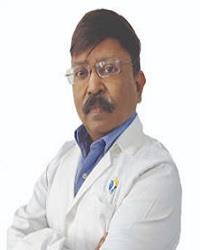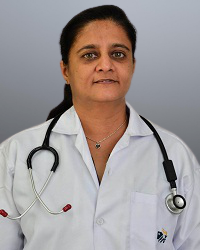Best Doctors for Laryngoscopy in Ahmedabad
Laryngoscopy is a crucial diagnostic procedure performed by larynx and vocal cord specialists to examine the inner tissues of the throat and larynx. This procedure is used to identify conditions such as persistent hoarseness, chronic cough, throat pain, and difficulty swallowing. It also helps in assessing vocal cord function, enabling the detection of issues like nodules, polyps, tumours, or inflammation.
In Ahmedabad, Apollo Hospitals' team of skilled doctors for laryngoscopy and voice disorders employs this procedure to diagnose unexplained throat pain, voice problems, swallowing difficulties, or injuries to the throat area. As a valuable tool in otolaryngology practice, laryngoscopy aids in preventing further complications and ensuring timely treatment for patients in the city and surrounding regions.









 Call Now
Call Now



